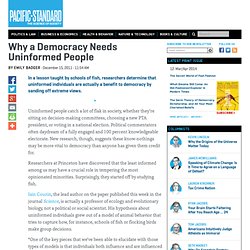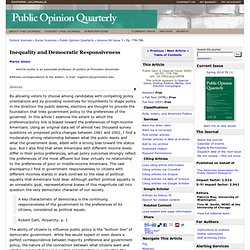

The Shadow Superpower - By Robert Neuwirth. With only a mobile phone and a promise of money from his uncle, David Obi did something the Nigerian government has been trying to do for decades: He figured out how to bring electricity to the masses in Africa's most populous country. It wasn't a matter of technology.
David is not an inventor or an engineer, and his insights into his country's electrical problems had nothing to do with fancy photovoltaics or turbines to harness the harmattan or any other alternative sources of energy. Instead, 7,000 miles from home, using a language he could hardly speak, he did what traders have always done: made a deal. He contracted with a Chinese firm near Guangzhou to produce small diesel-powered generators under his uncle's brand name, Aakoo, and shipped them home to Nigeria, where power is often scarce.
David's deal, struck four years ago, was not massive -- but it made a solid profit and put him on a strong footing for success as a transnational merchant. I like the phrase. We should be too. 28c3: A Brief History of Plutocracy. The real 'invented' people. It is hard to believe that anyone who defends Israel's legitimacy as a state would buy into former Speaker Newt Gingrich's argument that Palestine is an "invented nation".

The singular triumph of the Zionist movement is that it invented a state and a people - Israel and the Israelis - from scratch. The first Hebrew-speaking child in 1900 years, Ittamar Ben-Avi, was not born until 1882. His father, the brilliant linguist Eliezer Ben-Yehuda, created a modern language for him to speak by improvising from the language of the Bible. The founder of the Israeli state was Theodor Herzl (1860-1904), an assimilated Viennese writer who was convinced by the Dreyfus trial in France - and the horrendous right-wing anti-Semitism that resulted from it - that Jews had to get out of Europe. In 1897, he wrote the book that would essentially inaugurate the Zionist movement. He didn't specify where the Jewish homeland should be. The reaction to Herzl's idea was primarily that he was a bit crazy.
Iran: some inconvenient facts. : conspiracy. Why a Democracy Needs Uninformed People - Miller-McCune. In a lesson taught by schools of fish, researchers determine that uninformed individuals are actually a benefit to democracy by sanding off extreme views.

Uninformed people catch a lot of flak in society, whether they’re sitting on decision-making committees, choosing a new PTA president, or voting in a national election. Political commentators often daydream of a fully engaged and 100 percent knowledgeable electorate. New research, though, suggests these know-nothings may be more vital to democracy than anyone has given them credit for. Researchers at Princeton have discovered that the least informed among us may have a crucial role in tempering the most opinionated minorities.
Surprisingly, they started off by studying fish. Iain Couzin, the lead author on the paper published this week in the journal Science, is actually a professor of ecology and evolutionary biology, not a political or social scientist. [class name="dont_print_this"] [/class] Inequality and Democratic Responsiveness. Martin Gilens Address correspondence to the author; e-mail: mgilens{at}princeton.edu.

Abstract By allowing voters to choose among candidates with competing policy orientations and by providing incentives for incumbents to shape policy in the direction the public desires, elections are thought to provide the foundation that links government policy to the preferences of the governed. In this article I examine the extent to which the preference/policy link is biased toward the preferences of high-income Americans.
Using an original data set of almost two thousand survey questions on proposed policy changes between 1981 and 2002, I find a moderately strong relationship between what the public wants and what the government does, albeit with a strong bias toward the status quo. A key characteristic of democracy is the continuing responsiveness of the government to the preferences of its citizens, considered as political equals. Previous Research Data Findings consistency versus influence. America's fiscal union: The red and the black.